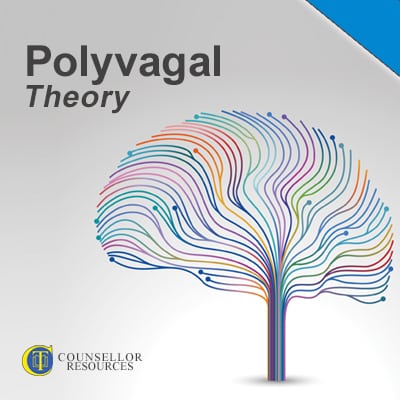You will hear in this lecture from counsellor and trainer Emma Chapman, who introduces the basic principles of the polyvagal theory, and explains how it might be applied in a therapeutic setting.
When you have listened to this lecture and read the accompanying slide pack, you will understand:
- the basic biology of the vagus nerve and the autonomic nervous system
- how to recognise the signs and symptoms of different survival states
- how and why different survival states might be triggered
- how this theory might be used in a therapeutic setting.

Watch this Lecture + Access Hundreds of Hours of CPD
Certified CPD for Qualified Counsellors
- Hundreds of hours of on-demand CPD lectures to help you stay current with your CPD ethical requirements
- Support, and be supported, by thousands of other counsellors as a member of the exclusive online community.
- Access your learning anytime you want ... anywhere you choose ... using any device type — desktop or mobile.

Starting the lecture, Emma explains what brought her to investigate the polyvagal theory, explaining that it has helped her make sense of her experiences when working with vulnerable clients in a wide range of settings, including schools, young offenders’ institutes, mental health services, family support settings, hostels and charities. Knowing about this theory may thus support you in providing the best possible service to your clients.
Together, you and Emma will investigate what the mind is, the extent to which the brain is in charge, and the contemporary theory on all this. Emma explains the origins of the theory, and how it has developed since its initial discovery by Stephen Porges in 1994.
You will learn about the autonomic states of social engagement, fight/flight and shutdown: the facts, biology and general functioning – all presented in a clear table format that will be easy to refer back to. Emma explains:
- the concept of mixed autonomic states
- how states are triggered
- stuckness in a particular state
- the role of the vagal brake.
Most importantly, Emma ‘translates’ the theory into practice, concluding with a list of tasks that we as counsellors can all use with clients to enable safer and more effective working with our clients.
To take your learning further, you will go away from this lecture with a list of eight references and further reading on this important topic.
About the Lecture Presenter

Emma Chapman is a counsellor and trainer working in private counselling practice in Cheshire. In her Northwich office, she works with adults, young people and couples.
Emma believes that having good mental health is the key to having a fulfilled and happy life. As a passionate advocate for mental health, Emma also delivers mental health training to a variety of audiences across the North West of England.
Emma is a qualified teacher who came to counselling later on in life after 15 years of working in the public sector and charity roles. During this time she worked with vulnerable children, adults and families in teaching, family support, safeguarding and pastoral roles.
After so many years working with children and families who often struggled to manage day-to-day life, Emma began to observe that poor mental health and trauma played a huge part in keeping people stuck in damaging patterns of behaviour.
This conclusion led her to further training in mental health, and she started her counsellor training in 2014 at Mid-Cheshire College studying part-time. In 2018 she completed an MA in Clinical Counselling at Chester University.
Emma has experience working in an NHS IAPT setting but decided to work privately in order to work with her clients more creatively.
After a short spell teaching counselling at a local college, Emma continued to put her teaching skills to use and further develop some training packages for fellow counsellors, educational settings and businesses.
As a mother of two children, Emma struggled with her own mental health after becoming a Mother. In 2019 she had her research into maternal mental health published in the journal of Crisis, Illness and Loss*. She now specialises in working with mothers experiencing perinatal mental health difficulties in her private practice.
Following some time working at a charity dedicated to the prevention of suicide, it became clear to Emma that there was little therapeutic support for those experiencing suicidal ideation.
In her private practice, she also works with people who are experiencing Suicidal Thoughts and delivers suicide awareness training to counsellors and other organisations across the North West.
Free Handout Download
Polyvagal Theory lecture overview